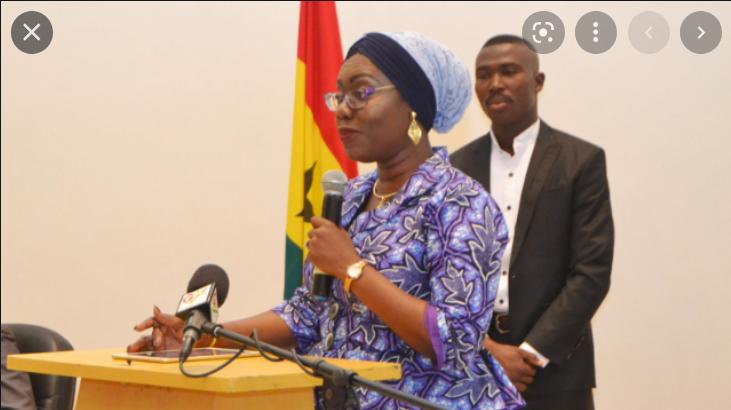Africa-Press – Ghana. Mrs Ursula Owusu Ekuful, Minister of Communication and Digitalisation (MOCD), says the government is determined to accelerate efforts to leverage technology to transform the economy to be more competitive.
She said transforming the economy through technology was the way to go since it would quicken the country’s development and growth and make the ease of doing business effectively.
“This global movement, which is evolving in the global digital economy, is transforming the way we live and work throughout the world. Governments all over the world have placed priority on transforming their economies and countries into more digitally advanced ones to reap the benefit and gains associated with it. Ghana cannot afford to be left out.”
Mrs Owusu Ekuful said this at a digital readiness workshop for government ministries, organised by the MOCD, through the GhanaCARES ‘Obaatanpa’ programme.
The workshop, she noted, was an important first step in the digital transformation journey to develop mechanisms to benefit from the advances in technology, especially reviving from the post covid economy.
Mrs Owusu Ekuful said the government’s agenda was to effect a foundational shift from the way individuals transact business in Ghana, and the GhanaCARES programme sets out governments’ approach to mitigating the economic challenges created by COVID-19 and steps to drive the national economic transformation.
She said digital transformation was a key component of the GhanaCARES programme and as such government would ensure sustained investment and development of communications infrastructure, integrate and leverage data systems and platforms, enhance the capacity of key institutions and improve coordination with the private sector for improved service delivery, business expansion and economic transformation.
“We intend to invest, consolidate, strengthen and expand the national fibre network in order to expand and improve network connectivity. As a country, we must build on our assets that are scattered in various organisations to derive maximum benefit from them.”
Mrs Owusu Ekuful said the government would also promote and increase the digital literacy of Ghanaians to enable them to engage and support Ghanaian technology entrepreneurs to build technology hubs and to export IT-enabled services.
“These are carefully selected interventions to aid the digital transformation process of the country. This is because digital transformation is not a destination but a journey that is long and challenging but it must happen at an increasing pace.”
She said the government would, therefore, continue to play a pivotal role in this journey, working in partnership with the private sector and the citizen, to put in place certain foundational elements to ensure quick delivery of the transformation needed.
“This workshop is, therefore, a crucial first step towards ensuring that the right building blocks are put in place. Getting people with the right mindset and support will ensure that we expedite action on the digital transformation.”
She said participants nominated for the workshop would be digital transformation leads, who would become the focal point of the ongoing engagements with the various Ministries and would work with the Ministry to execute this initiative.
“Participants are expected to set up a team within their Ministries and share the knowledge with them, institutionalize this exercise at their workplaces, make it part of their everyday work to keep track of their assets and help build an interoperable system linked up into each other.”
Mr Kussum Appiah, Head of GhanaCARES Delivery Unit, MOCD, said the GIDT Blueprint was a roadmap for digital transformation, which identified the building blocks for the digital transformation agenda.
He said to accelerate the rate of digital transformation, some priorities of the government, including improving internet connectivity, increasing digital literacy, supporting entrepreneurship and expediting government digital initiatives.
“Through these priorities, a lot of interventions and targets have been put in place by the government, including digital assets and service register, digital readiness assessment, expedite and consolidate ongoing public projects.”
Other interventions include fibre assets consolidation, establishing regional digital centres and a common national digital architecture and implementing the GIDT.
For More News And Analysis About Ghana Follow Africa-Press







